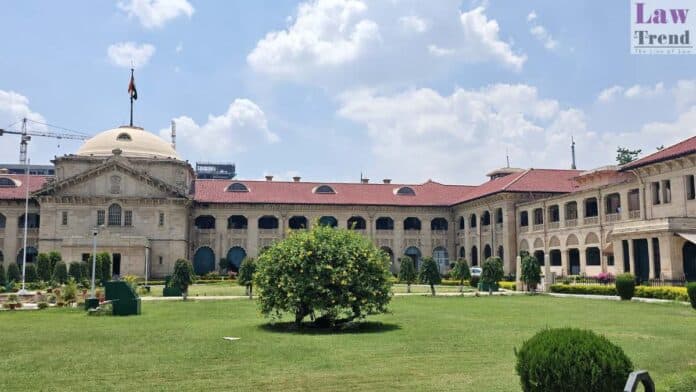In a significant affirmation of transgender rights, the Allahabad High Court has directed the Uttar Pradesh education department and the Madhyamik Shiksha Parishad to issue fresh educational documents reflecting a transgender petitioner’s changed name and gender following sex reassignment surgery.
Justice Saurabh Shyam Shamshery quashed an April 8, 2025 order by the Regional Secretary, Madhyamik Shiksha Parishad, Bareilly, which had rejected the petitioner’s request for name and gender change on the ground that there was “no procedure for such correction at a very belated stage” and that the Transgender Persons (Protection of Rights) Act, 2019 and the Rules, 2020, were inapplicable.
The petitioner, Sharad Roshan Singh, underwent gender reassignment surgery from female to male and was formally recognised as a transgender person under the Transgender Persons (Protection of Rights) Act, 2019. The district magistrate issued a certificate of identity under Section 6 of the Act.
Following this, the petitioner applied for correction of name and gender in educational documents in terms of Rule 5(3) of the Transgender Persons (Protection of Rights) Rules, 2020. The education board, however, rejected the request, citing lack of procedural provision and delay.
Appearing for the petitioner, senior advocates H.R. Mishra and Chitrangada Narayan argued that the right to change name and gender after sex reassignment surgery is constitutionally and statutorily protected under the Transgender Persons Act, 2019, and that the board’s rejection violated the Act’s mandate and the petitioner’s dignity.
They relied on precedents from the Supreme Court and various High Courts recognising the right of transgender persons to self-identify their gender and seek correction of official records accordingly.
Justice Shamshery observed that the Transgender Persons (Protection of Rights) Act, 2019, is a special legislation enacted to protect and promote the rights of transgender individuals. He cited Section 20 of the Act, which provides that its provisions are “in addition to and not in derogation of any other law for the time being in force.”
“The concerned respondents have committed a legal error by not applying the provisions of the Act of 2019 in favour of the petitioner,” the court said.
Allowing the writ petition, the High Court directed the Madhyamik Shiksha Parishad to issue a fresh marksheet and educational certificates to the petitioner, incorporating the corrected name and gender in line with the Transgender Persons Act, 2019, and the Rules, 2020.




